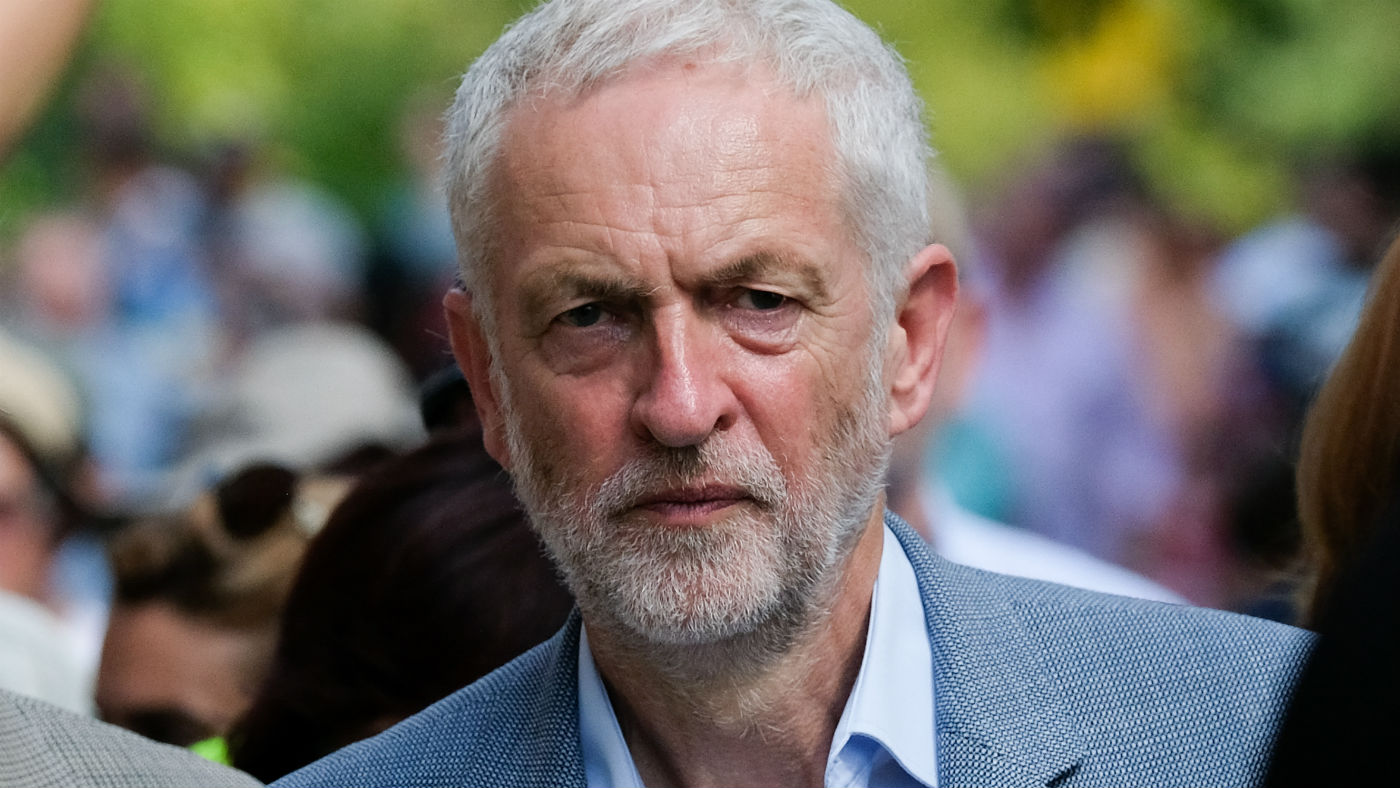Brexit talks: who are the senior Labour MPs defying Corbyn?
The party leader is facing dissent in ranks over demand that PM rules out no-deal Brexit

A free daily email with the biggest news stories of the day – and the best features from TheWeek.com
You are now subscribed
Your newsletter sign-up was successful
A group of rebel Labour MPs are defying Jeremy Corbyn’s orders to boycott cross-party discussions aimed at finding a Brexit plan that might command a majority in the House of Commons.
Corbyn sent an email to all his MPs yesterday telling them not to meet with government ministers until the prime minister accepted his pre-conditions for talks.
The Labour leader wrote: “I have been absolutely clear that any starting point for talks about breaking the Brexit deadlock must be on the provision that that the threat of a disastrous ‘no deal’ outcome is ruled out.”
The Week
Escape your echo chamber. Get the facts behind the news, plus analysis from multiple perspectives.

Sign up for The Week's Free Newsletters
From our morning news briefing to a weekly Good News Newsletter, get the best of The Week delivered directly to your inbox.
From our morning news briefing to a weekly Good News Newsletter, get the best of The Week delivered directly to your inbox.
He expects “colleagues to respect that condition and refrain from engagement ... until no deal is taken off the table”, the email continued.
But Corbyn’s directive appears to have gone unheeded in some quarters, with a number of Labour MPs opting to meet with ministers to open cross-party Brexit talks following the resounding rejection of Theresa May’s proposed deal earlier this week.
The rebels include Lucy Powell and Stephen Kinnock, “who both advocate a Norway-style deal keeping the UK in the customs union”, along with outspoken Corbyn critic John Mann, MP for Bassetlaw, reports The Daily Telegraph.
Prominent Labour backbenchers Yvette Cooper and Hilary Benn have also met with the Government, but “said they had attended the meeting in their capacity as chairs of cross-parliamentary committees”, says the BBC.
A free daily email with the biggest news stories of the day – and the best features from TheWeek.com
Following the talks, a defiant Cooper said: “We want to see if the Government is actually prepared to make some changes.”
She added: “The most important thing now is that the Government actually listens and it doesn’t just think that a defeat that was that huge can simply be dismissed.”
The Independent reports that when asked whether Corbyn should be taking part in the discussions, Benn said: “That is a decision for Jeremy to take. He’s demonstrating that it’s not just the prime minister who can be stubborn.”
Other Labour colleagues were less equivocal. Former shadow chancellor Chris Leslie told the Telegraph that his top priority was my “country and my constituents”.
“I think we have to rise above short-term party political calculations and put the country’s interests first,” he continued. “Now is the time to show that you’re not driven solely by ideology and you’re prepared to engage in dialogue.”
That sentiment was echoed by former shadow business secretary Chuka Umunna, who told Sky News that Brexit was “above party politics” and that he would continue to engage with ministers and MPs from across the Commons.
The growing dissent could pose longer term problems for Corbyn, with the potential threat of “a political realignment if moderate Labour MPs use the People’s Vote as the nucleus of a new centrist party”, says The Economist.
Speaking at a rally in Hastings on Thursday morning, Corbyn accused May of using the invitation of talks as a “stunt” to run down the clock, adding that it was not a “serious attempt to engage”.
The PM has said that she is sticking to the “principles” behind her Withdrawal Agreement, which include taking control of money, borders and laws, and having an independent trade policy.
May said that her door is open for talks with the Labour leader, but told him that his demand is “an impossible condition, because it is not within the Government’s power to rule out no deal”.
-
 One great cookbook: Joshua McFadden’s ‘Six Seasons of Pasta’
One great cookbook: Joshua McFadden’s ‘Six Seasons of Pasta’the week recommends The pasta you know and love. But ever so much better.
-
 Scientists are worried about amoebas
Scientists are worried about amoebasUnder the radar Small and very mighty
-
 Buddhist monks’ US walk for peace
Buddhist monks’ US walk for peaceUnder the Radar Crowds have turned out on the roads from California to Washington and ‘millions are finding hope in their journey’
-
 Who is Keir Starmer without Morgan McSweeney?
Who is Keir Starmer without Morgan McSweeney?Today’s Big Question Now he has lost his ‘punch bag’ for Labour’s recent failings, the prime minister is in ‘full-blown survival mode’
-
 Why the Gorton and Denton by-election is a ‘Frankenstein’s monster’
Why the Gorton and Denton by-election is a ‘Frankenstein’s monster’Talking Point Reform and the Greens have the Labour seat in their sights, but the constituency’s complex demographics make messaging tricky
-
 Reforming the House of Lords
Reforming the House of LordsThe Explainer Keir Starmer’s government regards reform of the House of Lords as ‘long overdue and essential’
-
 How long can Keir Starmer last as Labour leader?
How long can Keir Starmer last as Labour leader?Today's Big Question Pathway to a coup ‘still unclear’ even as potential challengers begin manoeuvring into position
-
 The high street: Britain’s next political battleground?
The high street: Britain’s next political battleground?In the Spotlight Mass closure of shops and influx of organised crime are fuelling voter anger, and offer an opening for Reform UK
-
 Biggest political break-ups and make-ups of 2025
Biggest political break-ups and make-ups of 2025The Explainer From Trump and Musk to the UK and the EU, Christmas wouldn’t be Christmas without a round-up of the year’s relationship drama
-
 ‘The menu’s other highlights smack of the surreal’
‘The menu’s other highlights smack of the surreal’Instant Opinion Opinion, comment and editorials of the day
-
 Is a Reform-Tory pact becoming more likely?
Is a Reform-Tory pact becoming more likely?Today’s Big Question Nigel Farage’s party is ahead in the polls but still falls well short of a Commons majority, while Conservatives are still losing MPs to Reform